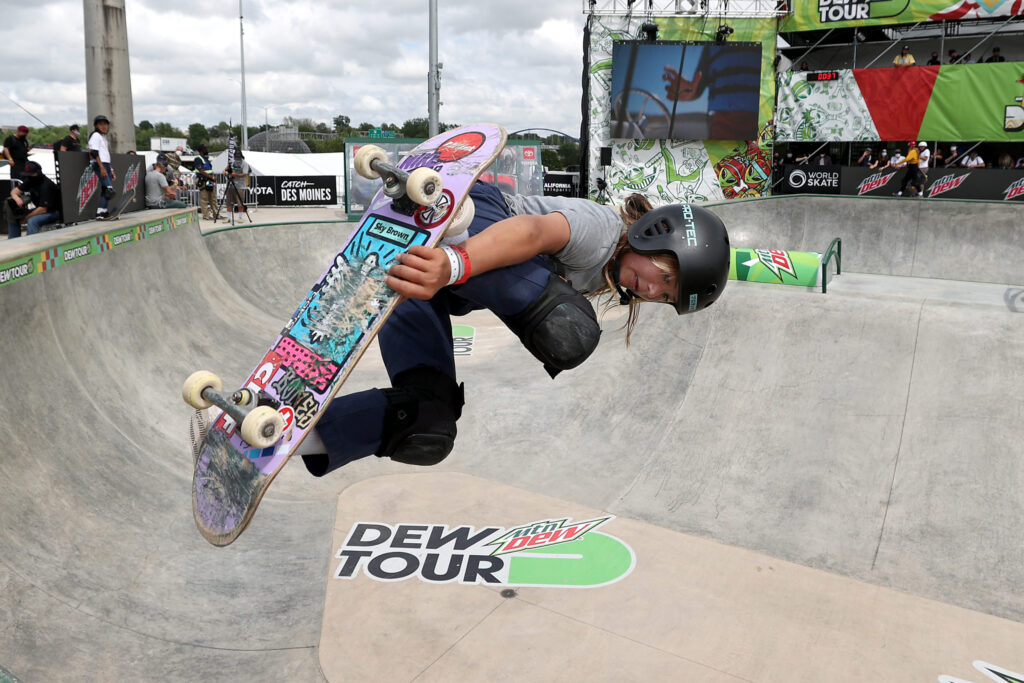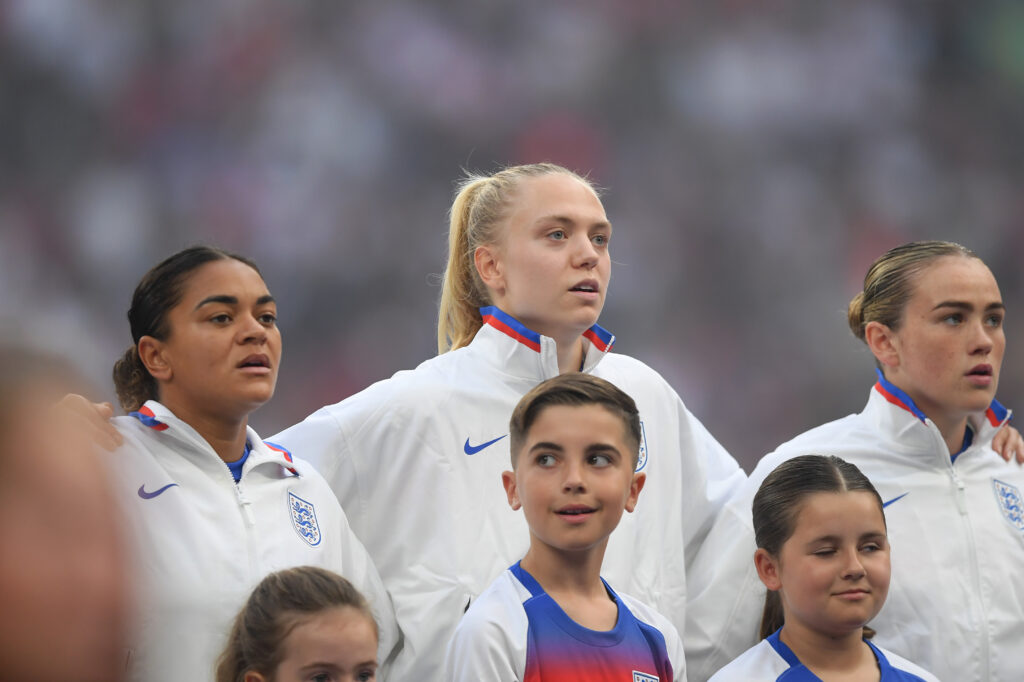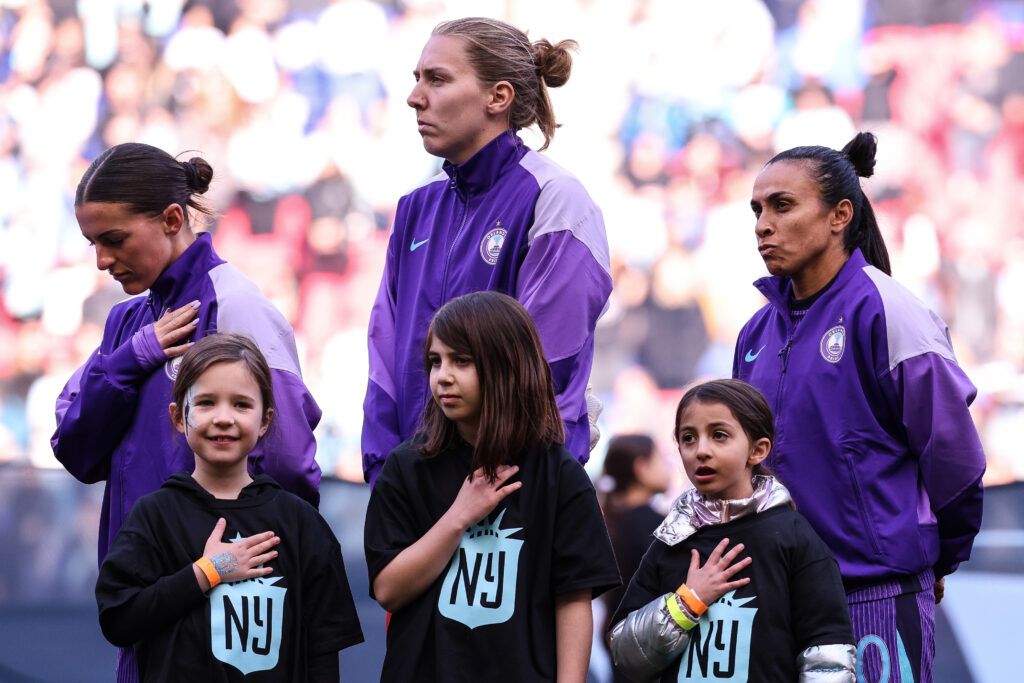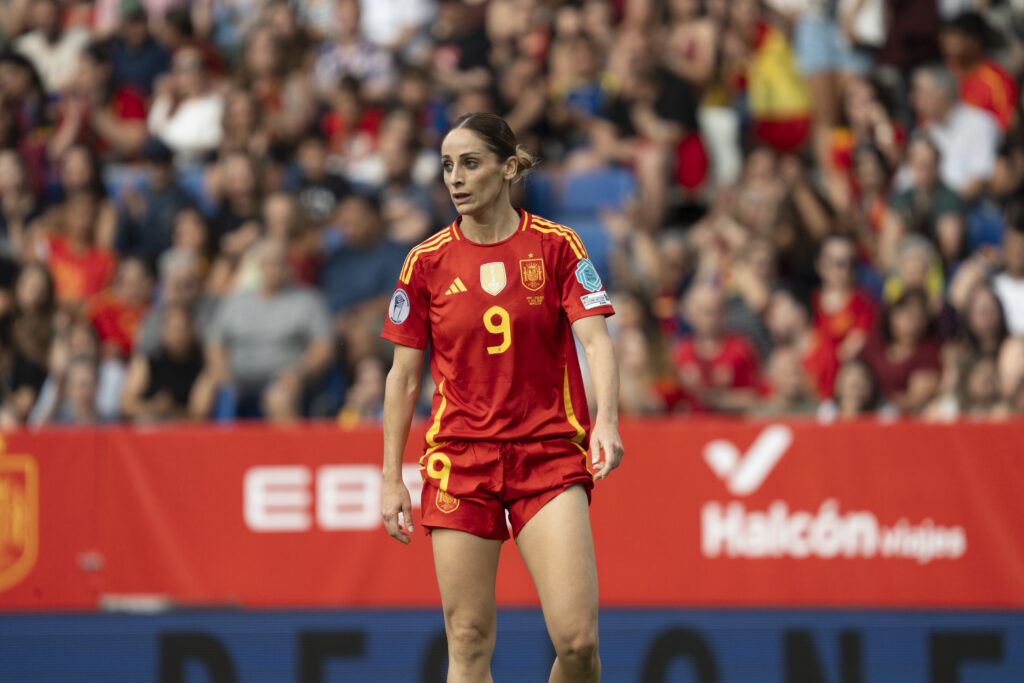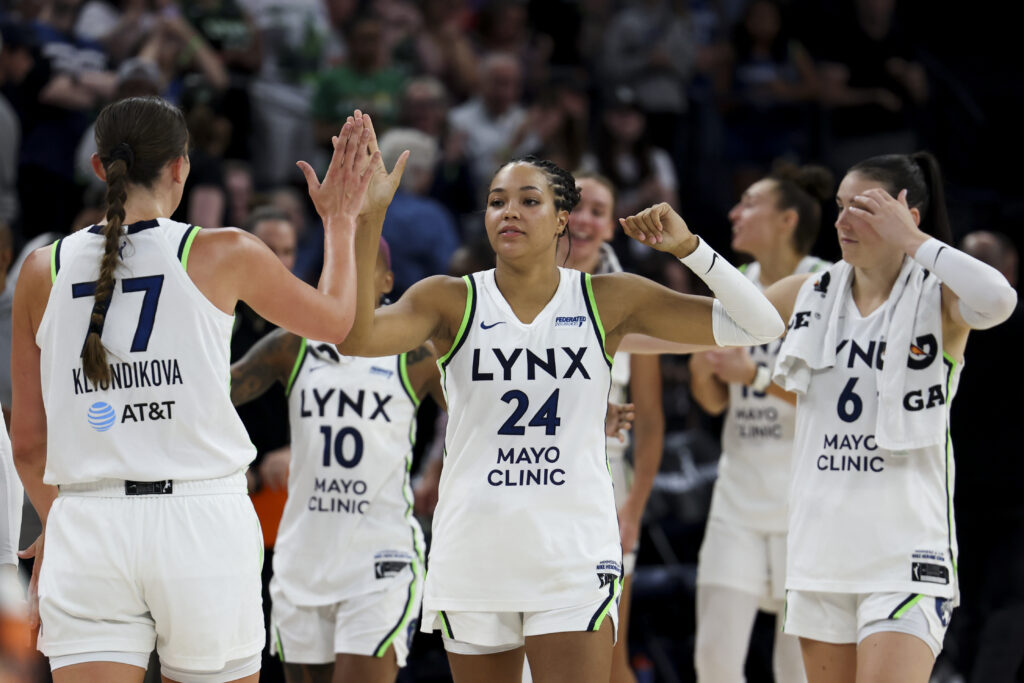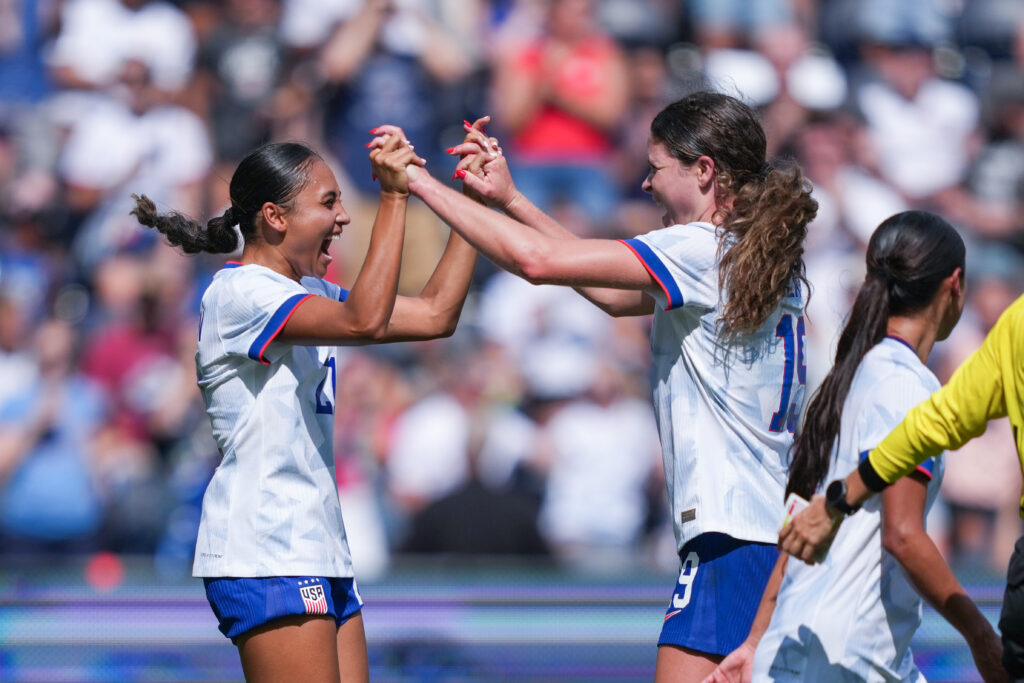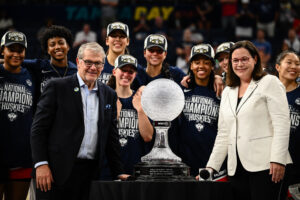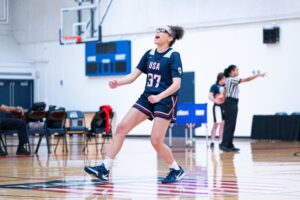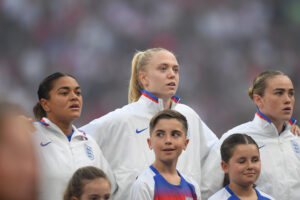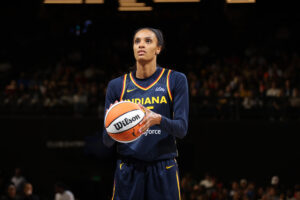You know Katie Ledecky, Simone Biles, Allyson Felix and the other household names competing in the Summer Olympics.
Before the opening ceremony Friday marks the official start of the Games, get to know the teenage athletes who could medal in Tokyo and contend for titles for years to come.
1. Katie Grimes, 15
Country: USA
Event: Swimming
About: At the young age of 15, Katie Grimes was the breakout star at the U.S. Olympic Swim trials. She’ll be competing in the women’s 800-meter freestyle in Tokyo alongside highly-decorated Olympian Katie Ledecky. Grimes is the youngest swimmer to make the Olympic team since Ledecky in 2012. Even Ledecky is already singing Grimes’ praises, saying she’s “the future,” and “the now.”
2. Athing Mu, 19
Country: USA
Event: Track and Field
About: Fresh off of breaking the Olympic Trials track record in the 800-meter dash, Athing Mu is being touted as the country’s next great middle-distance runner. Mu, who competed at Texas A&M before turning pro this summer, holds NCAA records for both the 400 meters (49.57) and the 800 meters (1:57.73). In regards to feeling pressure as a running prodigy, Mu says, “I take everything that people say lightly. I don’t let it get to my head.”
19-year-old @athiiing sets the Trials record and punched her ticket to Tokyo! 🎟@usatf | #TrackFieldTrials21 x #TokyoOlympics pic.twitter.com/luuwJoUHnS
— #TokyoOlympics (@NBCOlympics) June 28, 2021
3. Hannah Roberts, 19
Country: USA
Event: Cycling
About: BMX Cycling is making its Olympic debut in Tokyo, and so is Hannah Roberts. Roberts is a highly decorated star on the BMX freestyle circuit. In 2019, she won all three World Cup events in addition to her second world championship. Roberts is a gold-medal favorite in her event in Japan, and she could become the first teenage woman to win an Olympic cycling medal.
4. Hend Zaza, 12
Country: Syria
Event: Table tennis
About: Representing Syria, 12-year-old Hend Zaza is set to be the youngest Olympian in 52 years. She’s also beating the odds: Zaza has been able to participate in only two or three external matches a year due to war. If you haven’t watched table tennis before, Zaza’s stellar talent will make you want to follow this Olympic sport in Tokyo.
5. Torri Huske, 18
Country: USA
Event: Swimming
About: Having just graduated from high school and heading to Stanford next year, Torri Huske managed to break the 100-meter butterfly record twice at the Olympic swimming trials last month. Twenty-four hours after she broke the U.S. record in prelims by .20 seconds, she broke her own record again. Starting off as a “normal little kid who worked hard,” she will now be one of 11 teenagers to compete for the U.S. swimming team in Tokyo.
6.Grace McCallum, 18
Country: USA
Event: Gymnastics
About: Grace McCallum was named to the four-person team representing the U.S. at the Summer Olympics following the national trials in June, an achievement that seemed nearly impossible when she broke her hand earlier in the year. McCallum, who had already competed at the U.S. Classic and the National Championships, finished fourth at the Olympic Trials. The 18-year-old’s specialties include uneven bars and balance beam.
7. Caroline Marks, 19
Country: USA
Event: Surfing
About: Surfing standout Caroline Marks took the world by storm in 2018. In her breakout year, as the youngest surfer ever to qualify for the Women’s Championship Tour, Marks was named Rookie of The Year and finished with a No. 7 world ranking. Now ranked sixth on the Championship Tour, Marks spoke with Just Women’s Sports about her rapid ascension to the top of her sport.
It's not long before 19-year old @Caroline_Marks3 makes her debut on the global stage. Surf fans everywhere are in for a treat.
— World Surf League (@wsl) July 16, 2021
Video: Swellshotz pic.twitter.com/ulyQ2E9OJ8
8. Kokona Hiraki, 12
Country: Japan
Event: Skateboarding
About: At the age of 12, Kokona Hiraki will be one of the host country’s youngest and most admired stars. After ranking fifth at the final Tokyo Olympics qualifier for women’s park skateboarding, Hiraki will now be the youngest Japanese Summer Olympian ever. Her dedication to her craft is next level: After practicing a nosegrind trick over and over again, Hiraki wrote, “You can feel all the things I love about skateboarding through this trick. The unstableness from being just on the front truck on the coping, the sound of grinding, and the satisfaction when you make it.”
9. Nevin Harrison, 19
Country: USA
Event: Canoeing
About: Canoe sprint world champion Nevin Harrison is heading to the Tokyo Olympics with high expectations. In 2019, she became the first American to win a world sprint canoe title by clinching the women’s C1 200-meter event. Harrison is also a strong advocate for women’s canoeing’s inclusion in the Olympics, saying, “I think it’s more important to have every group represented rather than having a lot in just one gender or discipline,” Harrison said.
10. Sunisa Lee, 18
Country: USA
Event: Gymnastics
About: After coping with family illness, COVID-19 related deaths, and injury, Sunisa Lee claimed a coveted spot on the U.S. women’s gymnastics team by finishing in the top two at the Olympic trials. “It’s the unparalleled mental strength that she has shown during the most difficult time of her life that makes her the person she is,” said 2008 All-Around champion Nastia Liukin. Lee, whose parents emigrated from Laos, will be the first-ever Hmong American Olympic gymnast. While she’s an incredible all-around talent, she’s especially known for her bar routine.
11. Sky Brown, 13
Country: Great Britain
Event: Skateboarding
About: Sky Brown is arguably one of the biggest and brightest stars of any age at this year’s Olympics. At just 13 years and 11 days, she’ll be the youngest Summer Olympian for Great Britain. A fearless and promising athlete, Brown is currently ranked fourth in the world and is highly respected in the skateboarding community. “She could definitely be one of the best female skaters ever… she has such confidence, such force, even at such a young age. The way she’s able to learn new tricks and the way she absorbs direction, it’s so rare,” said skateboarding legend Tony Hawk.
Sky Brown 🇬🇧 wins gold in Women’s Skateboard Park at #XGames 2021! pic.twitter.com/LcGC5OqENB
— X Games (@XGames) July 16, 2021
12. Jessica and Jennifer Gadirova, 16
Country: Great Britain
Event: Gymnastics
About: 16-year-old twin sisters Jessica and Jennifer Gadirova will be each other’s support systems in Tokyo, as they will represent half of Great Britain’s four-person gymnastics team. Jessica flourished at the 2021 European Championships, where she won the bronze in the all-around and silver in vault, and she became the European champion in the floor exercise. Jennifer, a strong vaulter and floor gymnast, is known for her difficult tumbles and eye-catching choreography.
13. Viktoria Listunova, 16
Country: Russia
Event: Gymnastics
About: The postponement of the 2020 Olympics allowed 16-year-old Russian gymnast Viktoria Listunova to be eligible for the 2021 Olympics. “It’s such an opportunity, it is such a big chance,” Listunova says. She is determined to make the most of this opportunity and is considered a possible contender to upset world champion Simone Biles.
14. Rosalie Boissoneault, 18
Country: Canada
Event: Synchronized Swimming
About: A native of Québec, Canada, Rosalie Boissoneault joins the Canadian synchronized swimming team as one of its newest members. She is making her Olympic debut at just 18 years old after joining the senior national team in 2020. Starting in her sport at the age of 3, Boissoneault is a young star looking to make a splash in Tokyo.
15. Rayssa Leal, 12
Country: Brazil
Event: Skateboarding
About: Another young Olympic phenom and friend of Sky Brown is Brazilian skateboarder Rayssa Leal (pronounced “Hi-ee-sa”), known for her many viral trick videos. She is currently second in the World Street Skateboarding rankings. Giving props to her supportive family, Rayssa says, “they don’t pressure me to always win and be first, they encourage me to do what I like, which is skateboarding.”
16. Regan Smith, 19
Country: USA
Event: Swimming
About: Regan Smith, the current world-record holder in the women’s 200-meter backstroke, is heading to her first Olympics to represent Team USA. This young star showed off her talent during the World Championships in 2019, where she broke two world records: the 100- and the 200-meter backstroke. Smith will be taking a gap year and plans to attend Stanford in 2022.
17. Brighton Zeuner, 17
Country: USA
Event: Skateboarder
About: Zeuner is coming to the Olympics as a decorated skater with serious competitive chops. She’s the youngest recipient in history to have won two X Games gold medals, and she also holds a Vans Park Series World Championship title. Her great passion and love for skateboarding pushed her to keep going and get her to where she is now. ‘”I love it. Because of skateboarding, I’m kind of who I am. I get validation out of it. It makes me feel human. It’s just a part of me,”’ Zeuner said.
18. Hailey Hernandez, 18
Country: USA
Event: Diving
About: Hailey Hernandez started competing right out of high school and surprised the diving world by placing second in the women’s three-meter springboard at the Olympic trials. “When I hit that water, I knew that I had done it and so I just had the biggest smile on my face,” Hernandez says. Her hometown in Southlake, Texas, threw the two-time World Junior Championship silver medalist an epic Olympic send-off event and will be rooting hard for her this summer.
19. Gaurika Singh, 19
Country: Nepal
Event: Swimming
About: Nepali swimmer Gaurika Singh will represent her country both in the pool and as the flag bearer. The 19-year-old was the youngest athlete at the 2016 Rio Olympics at 13 years and 255 days, and she was chosen to lead the five-member Nepali team in the opening ceremony this year. Singh has collected over nine medals during the South Asian Games and set a record for the most gold medals in 2019.
20. Oceana Mackenzie, 19
Country: Australia
Event: Sport Climbing
About: Australian sport climbing star Oceana Mackenzie will help introduce this new Olympic sport to the world. She started climbing at age of 8 and has been passionate about it ever since. “I love how it’s mentally and physically challenging,” she says. “I have to see the climbs and figure out how to get up them — it’s almost like working out a puzzle.”
